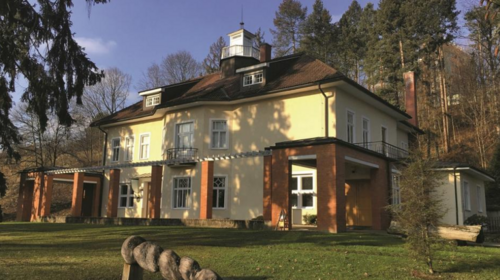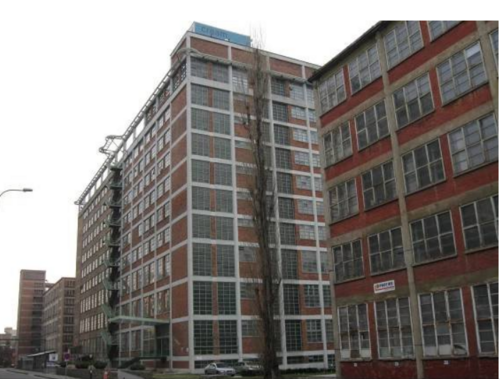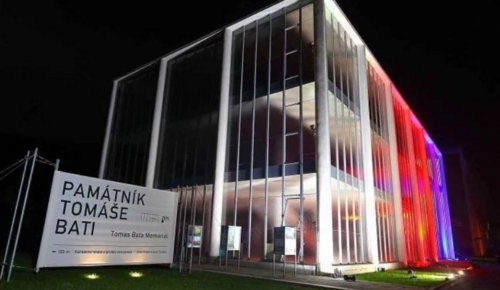
Tomáš Baťa (pronounce Batia) - a Czech entrepreneur
From Czech Wiki: Tomáš Baťa (3. April 1876 Zlín - 12.July 1932 Otrokovice) was a Czechoslovak businessman, the" king of shoes " – the creator of the world shoe empire, the mayor of Zlín (1923-1932) and a public figure.
Together with his brother Antonín Jr. and sister Anna, he founded the shoe company Baťa in Zlín in 1894 and gradually turned it into an extensive complex of production, trade, transport, services and finance, he was one of the greatest entrepreneurs of his time. He introduced original methods of managing production and trade, as well as a system of motivating workers (Bata's management system), was able to influence a number of future economists. His practices were revolutionary for the business at the time and are still used as examples of top management.
Tomáš Baťa came from a family that lived of shoemaking for centuries. The first mention of the name Lukas Bata (Batiu, Batiku, Batu) is from 1667.
Already at the age of 12 he became interested in the craft. And not only how to make shoes, but also how to sell them as best as possible. At that time, he had basically mastered everything that was sufficient for him to trade. At the age of 14, young Tomas left home. Against his father's wishes, he went to Prostějov, where he worked at the Fäber company, which produced sewing machines. There he was very interested in machines that facilitate and speed up the work of shoemaking. However, soon he was fired because his employers were afraid of competition. Thomas returned to his father's workshop, but after a mutual disagreement, he left without money for Vienna to visit his sister Anna. She helped him financially and young Tomáš started his own business in his own workshop. However, his zeal for profit was soon ended by not knowing well the local market. In addition, he did not have official permission to practice the craft. Therefore, accompanied by his father, he returned to Uherské Hradiště in Moravia.
In 1894, Tomáš, brother Antonín and sister Anna were paid by their father from the family business. They received a dowry of 800 gold coins from their deceased mother, with which they founded a shoe business in Zlín, announced to be the eldest sibling of Antonín baťa Jr. according to the standards of that time, Tomáš was not yet of age. They originally applied for a permit for a shoe business in Uherské Hradiště, where the city did not allow them to operate a shoe business and build a shoe business. In Zlín, however, they gained understanding and approval for their business to start producing shoes. Thus, the city of Zlín consecrated, without the councillors knowing about it in advance, the foundation of the future famous shoe complex.
The Bata siblings initially produced Wallachian quilted shoes. They employed about 10 home - workers who had to work fixed hours for which they received a regular weekly wage. This way of running a business was very unusual for that time, but also very pioneering. In the summer of 1895, all their property was pawned in installments and bills that could no longer be paid. They were threatened with lawsuits from creditors. The crisis came and Bata found out that they were at the bottom. When Antonin left "for the war", Tomáš took over the management of the enterprise. Tried to get rid of debts and succeeded in 1896. The enterprise went through many more difficulties but in 1900 they had already 120 employees and later Tomáš Baťa decided to visit USA .
After almost half a year in the USA, he arrived in the spring of 1905 back and brought with him new plans for the construction of factory buildings and enthusiasm for the American direction of management. He also ordered new more powerful machines directly from the USA.
In 1908, the seriously ill Antonín Baťa died. Tomáš remained the sole owner of the company.
In 1912, shoemaking workshops switched to the production of all-leather shoes. Measures were also taken to deepen the rationalization and intensification of work. The company concluded employment contracts with the workers, according to which the workers who did not achieve the prescribed work performance were charged for compensation for so-called overhead losses. Otherwise, the workers were fined for insufficiently and poorly executed work.
.jpg) Tomáš Baťa in 1932
Tomáš Baťa in 1932
In the years 1926-1928, the export of shoes increased, and Bata controlled more than half of Czechoslovak exports. In the company there was an introduction of belt production, which was used at Henry Ford's factories. Labour productivity increased by 75% and the number of employees by 35%. The company's net turnover was CZK 1.9 billion before the war. By the end of 1928, the factory consisted of a complex of 30 buildings.
In 1925 Bata's School of labor was founded. Its graduates were the working elite of pre-war Czechoslovakia. Thanks to the school, the shoe company prepared its own workers for production and managers of foreign branches. To this day, 300 graduates-eyewitnesses remember their years at the school.
In the year 1932 Tomáš Baťa employed 31 235 workers (of which 23 906 in production and 7 329 in stores).
 Baťa administrative building in Zlín
Baťa administrative building in Zlín
His factories were in Czechoslovakia (Zlín, Otrokovice,etc. ) and abroad (Germany, Poland, Yugoslavia, Switzerland, France, British India). Bata's shoes were sold in 2,500 stores (of which 1,840 were in Czechoslovakia and 660 abroad).
His foreign stores, factories and sister companies operated in 54 countries of the world on four continents.
 Vila of Tomáš Baťa
Vila of Tomáš Baťa Baťa enterprises in Zlín
Baťa enterprises in Zlín
On12. July 1932, Tomáš Baťa, along with his pilot, died in a plane crash while flying to Switzerland in his Junkers F 13 to attend the opening of a new branch in the town of Möhlinon the banks of the Rhine, where he was nicknamed "Der tschechische Schuhkönig".
Bata was the fourth richest person in what was then Czechoslovakia. Although he greatly improved the poor region economically and gave people jobs and a higher standard of living, in the eyes of the communists he was only a capitalist exploiter.
 Baťa memorial
Baťa memorial
"I consider it my business duty to pay people enough for their work so that at the age of forty they can leave the business and do business, or rest, instead of their bare hands."
Baťa said this around 1930, when the weekly payment of the employees' share of the workshop and plant profits was already underway. This share of profit was already included in the calculation of each product, so it was enough to fulfill the plan and the calculated profit was yours. And indeed, millionaires existed in the Czechoslovak Republic until 1947. Many built villas for a small part of that money, many fled Hitler, and most paid for post-war monetary reforms.
.png)
In Czech boot or shoe is BOTA - as you see Baťa is very similar ! It seems he was predestinated by his name ! :-)
Thanks for reading, I hope this will inspire you in your entrepreneurs efforts
Margaret
